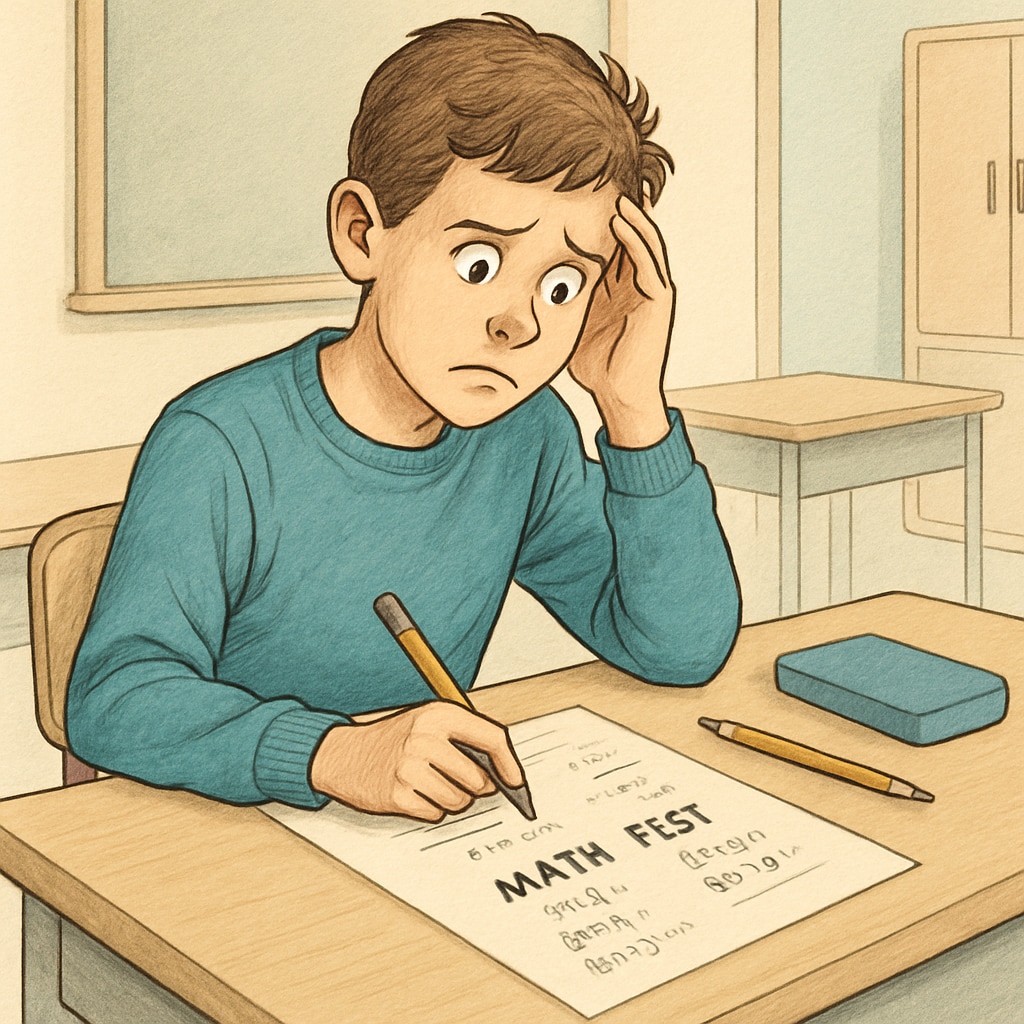For many students, math anxiety, especially during multi-choice tests, creates a significant barrier to academic success. The fear of making mistakes, combined with the pressure to select multiple correct answers, can overwhelm even the most diligent learners. This article dives into the psychological mechanisms behind math anxiety and provides practical strategies to help students conquer this challenge and regain control over their math exams.
Understanding the Roots of Math Anxiety
Math anxiety is more than just a dislike of numbers; it’s a psychological response that often stems from negative experiences, societal stereotypes, or a lack of confidence. A 17-year-old transfer student, Emma, serves as a prime example. Transitioning to a new school, she encountered complex multi-choice math tests for the first time. With limited preparation and high expectations, her anxiety spiraled, leaving her feeling defeated.
Multi-choice questions exacerbate this issue because they demand precision and thorough analysis. Unlike single-answer problems, these questions often have multiple correct responses, increasing the cognitive load. Students may overthink or second-guess themselves, triggering a cycle of doubt and stress.

Strategies to Overcome Multi-Choice Math Anxiety
Although math anxiety can feel overwhelming, there are actionable strategies to address it. Whether you’re preparing for an exam or facing a multi-choice test, the following tips can help:
- Practice Mindfulness: Simple breathing exercises can calm the mind and reduce anxiety. For example, inhale for four seconds, hold for four, and exhale for four.
- Break Down the Problem: Analyze each answer option individually rather than tackling the entire question at once.
- Use the Process of Elimination: Rule out obviously incorrect options to narrow down your choices, making the problem more manageable.
- Adopt a Growth Mindset: Remember that mistakes are opportunities to learn. This perspective can reduce the fear of failure.
Additionally, preparation plays a crucial role. Regular practice with multi-choice questions can build familiarity and confidence. Online resources, like those available on Khan Academy, offer structured practice for students at all levels.
Building Confidence for Exam Day
Confidence is key when approaching math exams. Here are some tips to ensure a positive mindset on the big day:
- Prepare Early: Cramming increases stress. Instead, divide your study sessions over weeks or months.
- Simulate the Test Environment: Practice under timed conditions to get used to the pressure.
- Visualize Success: Imagine yourself confidently solving problems and achieving your desired score.
- Stay Organized: Bring all necessary tools, like calculators and pencils, to avoid last-minute panic.
Moreover, don’t hesitate to seek support. Teachers, tutors, or even peers can provide guidance and reassurance. Online forums, like Reddit’s r/GetStudying, can also be valuable communities for advice and motivation.

From Anxiety to Empowerment
Math anxiety, particularly during multi-choice tests, doesn’t have to define your academic journey. By understanding its roots and implementing targeted strategies, you can shift from a state of fear to one of empowerment. Remember Emma? With consistent practice and support, she not only overcame her math anxiety but also began to enjoy the problem-solving process.
In conclusion, conquering math anxiety requires a combination of preparation, mindset shifts, and practical techniques. With these tools, students can transform their relationship with math, turning a source of stress into an opportunity for growth.
Readability guidance: Use concise paragraphs and clear lists to enhance readability. Incorporate transition words to improve flow, and ensure a balance between practical advice and motivational content.


